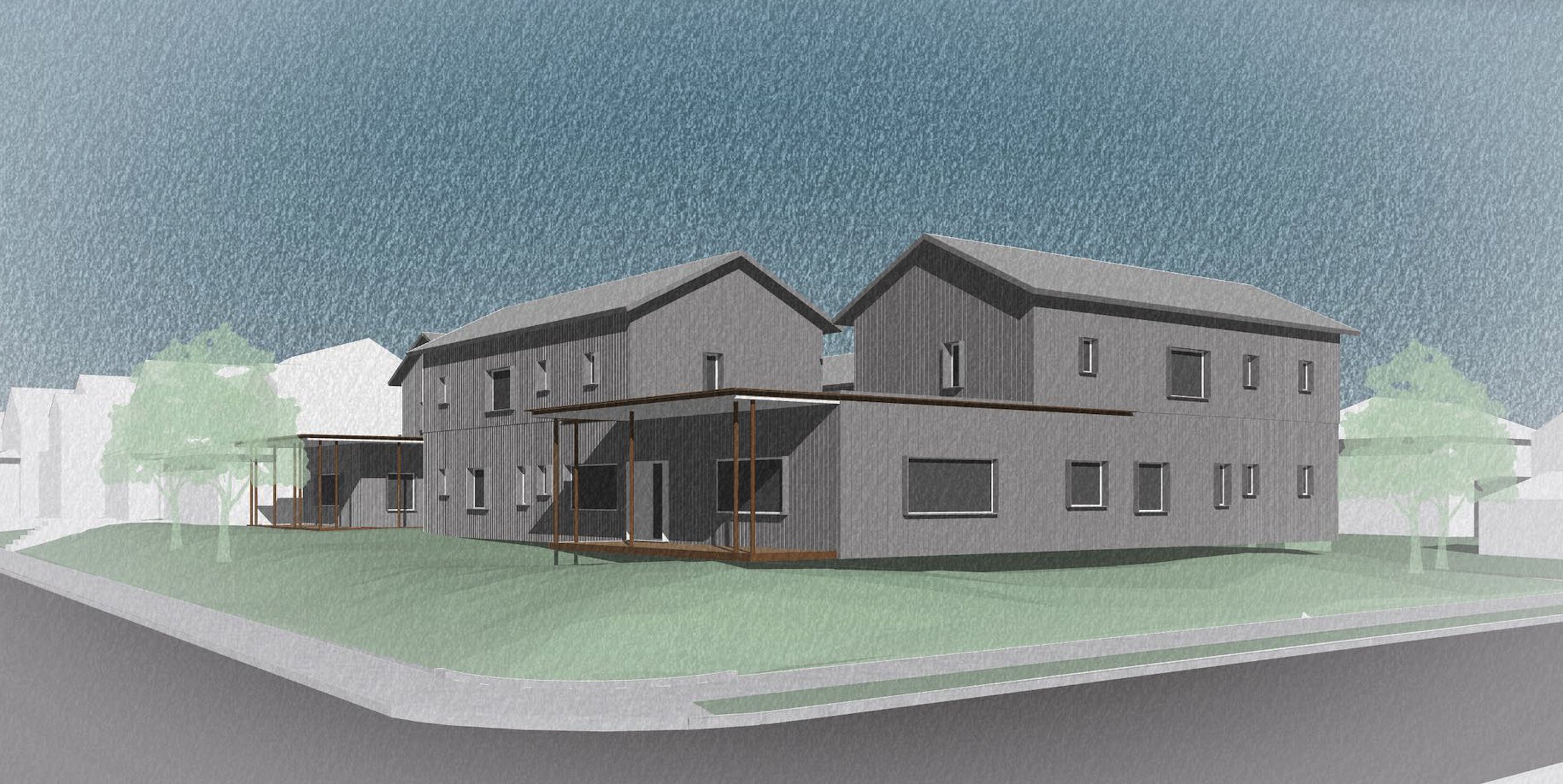
Our Proposal
Envision Community is a proposal to build and operate an intentional community made up of 20 people living in micro-units, with the goal of creating health equity. Our proposal also includes the rigorous study of Envision using Community-Based Participatory Research and continuous improvement of Envision through frequent iteration.
Predevelopment
We are currently carrying out several important activities before building Envision. The activities and funding needed to support those activities are listed below:
Continue our core mission: Advancing equity for people experiencing homelessness.
The core mission of Envision is to create a place where people experiencing homelessness can elevate themselves to be designers, problem-solvers, and decision-makers for the community they created. Envision Leaders are involved in all aspects of predevelopment including architectural design, community engagement, political advocacy, site evaluations, and fundraising. They are central to moving Envision forward.
Fund an Envision Leader: $16,000
Funding will support Envision Leaders – all of whom have lived experience of homelessness – as they work on predevelopment activities. They are involved in all aspects of predevelopment and are the key decision-makers at Envision. Envision Leaders should be paid for this valuable work like all leaders in our society.
Neighborhood Engagement
Now that we have a site, 21st and Penn Ave. N. in North Minneapolis, we are engaging neighbors, businesses, churches, local officials, and more to build relationships and communicate our vision. How our residents will live together on-site is only part of the equation. Equally important is how the group integrates with the surrounding community. We need to understand the viewpoint of the neighborhood where Envision Community will be located so we can address stereotypes about homelessness and break down other barriers to true community connection.
Construction of Envision
We are now positioned to build 10 units in Phase 1 of our development. Since the Covid 19 pandemic the layout of our development has changed. Now, instead of using tiny homes and a separate common house, Envision is built around micro units or SRO (single resident occupancy) units, housed together in an ‘L’ shaped building with common space at the corner. Residents will have their own restroom and a shared community kitchen as well as large common room for meetings, gatherings and entertainment.
Total Development Cost (TDC)
The TDC listed below are estimates from the information we know at this time. Once we secure site control, we will know the cost of that site, the number of units the site can accommodate, and we will be able to refine our TDC. While the TDC increases as we build more units on a site, in general, the TDC per unit decreases with each additional home as Envision achieves certain economies of scale. To help you understand the estimated costs of Envision Community, we have provided the costs estimates for a 24-unit community below.
Estimated Costs for a 24-Unit Community
Individual unit construction cost = $65,000 (estimated $20,000 materials and equipment; $15,000 labor; $10,000 utility connections, foundation, and site work; $5,000 construction overhead; $15,000 soft costs)
Common house = $300,000 (estimated 1,000sf at $300/sf)
TDC per unit = $105,000
TDC for 24-unit community = $2.5 million
Who will live here?
The vast majority of people living at Envision will have experienced homelessness and 20% percent of residents will have complex health needs including serious mental illness, physical health conditions, and struggles with addiction. But it is equally important for the community to have residents who have never experienced homelessness because they bring a valuable set of social connections, perspectives, and resources to the community.
We anticipate that residents will mirror the demographics of Minnesota’s adult homeless population and Minneapolis’s homeless support group Street Voices of Change, where the vast majority identify as being from communities of color. Envision is a mixed income community by intention, though the overwhelming majority of the residents will have incomes far below 30% of the area median.
Being Low Barrier is Essential
Envision supports people experiencing homelessness who struggle to find housing due to a range of barriers, including high housing costs, criminal records, substance abuse, mental health diagnoses, prior evictions, or poor credit history. Many people remain homeless for years because these barriers to housing are too high.
Especially in the competitive Twin Cities housing climate, housing providers have little incentive to make concessions for people with housing barriers. To disrupt this dynamic, we believe there needs to be affordable housing that is truly open-minded about who it houses. Envision housing is truly low-barrier and will not disqualify anyone because of poor credit history, past evictions, most criminal offenses, mental or chemical health struggles, or a history of homelessness. In this way, we create stable housing for the most vulnerable and underrepresented communities.
How will Envision operate?
Envision will run as a self-governed, self-managed intentional community with help from people and organizations we trust. Click here to learn more about Envision’s intentional community.
Learning and Continuous Improvement
Our proposal also includes the rigorous study of Envision so that we can learn from our experience and continuously improve Envision through frequent iteration. Click here to learn more about Envision’s research and improvement plan.
Rigorous Outcomes Evaluation: $500,000
Supports research staff and technical assistance needed to perform the formal 2-year evaluation of Envision Community.
Community Coordinator: $70,000 per year
Supports a Tasks Unlimited staff member who helps residents set and achieve goals, connect to resources, resolve conflicts, organize events, and build relationships with the surrounding community.
Continuous Improvement Designers: $135,000
Supports consultants who design new methods of strengthening social connections and operating more effectively during the 2-year demonstration period. Works with the residents at Envision to continuously improve the way our intentional community functions.

